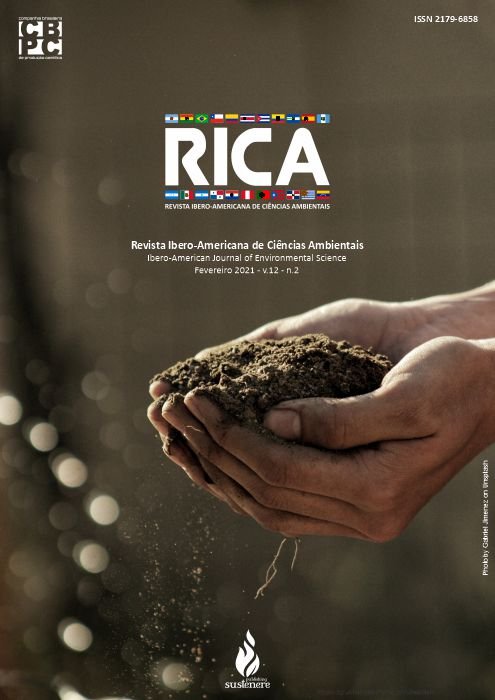Soil pollution: evaluative and relational bibliometric perspective of specialized scientific production
DOI:
https://doi.org/10.6008/CBPC2179-6858.2021.002.0001Keywords:
Environmental impact, Northeast, Pollutants, ContaminationAbstract
Soil, the basis of agricultural production, is a resource that, although available in large proportions, has been suffering negative impacts which significantly compromise its quality, making it unsuitable for different uses. Given the above, the objective was to compile the main authors and publications about soil pollution in Northeast Brazil, obtaining the profile of scientific production. An exploratory-descriptive approach based on bibliometric analysis was carried out, with the purpose of building scientific maps based on bibliographic data. The bases are concentrated on networks of researchers, networks of co-authorship, keywords that occur in publications, among other information. The database used for research was the Web of Science (WOS). The bibliography used in the research was analyzed in June 2020. Being selected by using specific keywords in the WOS search section. Evaluation related to the year of publication, research areas, journals, main funding agencies, in addition to the main bibliographic citation, coupling and co-citation networks by the group organization (cluster), generating a qualitative perspective. At the beginning, 585 articles were found, of which 263 were destined to the data analysis stage. The number of researches focused on the theme 'soil pollution in the Northeast' has grown significantly in the last 34 years, however it is still necessary to develop more studies related to the problem, since the exhaustive use of soils year after year is a major factor in the negative impacts caused to them.
Downloads
Downloads
Published
Issue
Section
License
The CBPC - Companhia Brasileira de Produção Científica (Brazil CNPJ: 11.221.422/0001-03) the material rights of the published works. The rights relate to the publication of the work anywhere in the world, including rights to renewals, expansions and dissemination of the contribution, as well as other subsidiary rights. All electronically published works may subsequently be published in printed collections under the coordination of this company and / or its partners. The authors preserve the copyright, but are not allowed to publish the contribution in another medium, printed or digital, in Portuguese or in translation.









